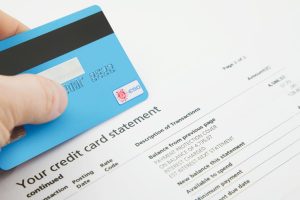Each state has specific requirements for pursuing a real estate license, and Florida is no exception. We've researched the subject at length to provide the best advice possible on how to go about getting your real estate agent license.
To become a real estate agent in Florida, you must:
- Possess a high school diploma
- Be 18 years old or older
- Have a social security number
- Live in the state of Florida
- Take the required educational courses in real estate
- Pass an exam for licensure
- Pay to have your fingerprints taken
- Apply for your license
- Find a broker to affiliate with to 'activate' your license, or
- Continue your education to become a broker

There's a lot to know about becoming a real estate agent or broker in Florida. Here, we'll cover everything you need to know to finance and pass your real estate license education and testing.
How Much Does It Cost to Become a Real Estate Agent in Florida?
Expenses for becoming a real estate agent in Florida include the cost of your education, the fees you pay to sit the licensing exam, the cost of purchasing a copy of your fingerprints for your application, and your application fees with the state of Florida for your license.
How Much Does It Cost to Go to Real Estate School?
Multiple educational institutions offer coursework for real estate professionals, and prices vary based on where you enroll and how long it takes you to complete the classes.
You can choose from online (distance learning) or in-person courses. Many exam centers offer classes with low fees. But another option is to enroll at your local college, though you will likely pay more per credit hour.
For most online real estate courses, you can expect to pay between $100 and $1,000. Colleges like Florida State University typically charge around $700 per credit, which increases your costs exponentially.
How Much Will a Real Estate Licensing Exam Cost?
Currently, Pearson Vue runs all of Florida's real estate licensing exam sessions. Your exam cost is the same, whether you're applying to become a sales agent or a broker.
Per the Florida Department of Business and Professional Regulation, Division of Real Estate (Florida DBPR) fact sheet that the test company provides, exam fees are $36.75.
How Much Do Applicants Pay for Fingerprinting Services?
Along with your real estate license application, you must also submit a copy of your fingerprint records. The state will use the fingerprints as part of your background check. A criminal history may impede your application, so this is a critical step.
You can obtain fingerprint scans (and the affiliated reports) from local law enforcement agencies or electronic fingerprint vendors. The cost ranges from $50 to $80.
How Much Does a Real Estate License Cost in Florida?
A license for a real estate sales associate costs $83.75, payable with your application. For a broker application (upgrading from a salesperson to a broker), you'll pay $91.75.
If you want to start a real estate corporation, limited liability company, or professional association, you must apply for licensure for your business.
A real estate company must have at least one active broker, and they must complete the application. To establish a real estate company, you'll pay a $77 fee.
Are There Waivers Available to Make It More Affordable?
The state of Florida offers fee waivers for a few groups of applicants. If you're a member of the following groups, the state may waive your initial licensing fee if you meet specific requirements:
- Military veterans
- National Guard members
- Spouses of military personnel and veterans
- People with low income
Documentation is required to prove your military service (or relationship to military personnel) or income level. Also, keep in mind that the waivers only apply to initial fees. If you decide to apply for your broker license later, a waiver may not apply.
Have more questions on real estate license costs across the United States? See our related post on How Much Does a Real Estate License Cost? here.
How Long Does It Take to Get a Real Estate License in Florida?
Depending on where you plan to work and what type of real estate agent you want to be, your timeline for earning a license can range between four and six months.
Taking online courses can help you get your license faster. You can complete the courses at your own pace in most online classes.
Once you finish your educational requirements, you have a limited window in which to apply for your license (about two years). But between your instructional hours and your license, you'll need to sit the exam for licensure.
Exams last 3 1/2 hours, but you must pre-schedule your session and travel to a testing center to sit the test.
What Education Do I Need to Work in Real Estate?
Though we speak in general terms about earning a real estate license, there are a few categories of employment in real estate. You can become a sales associate or broker-sales associate, a broker, or start a real estate company of your own, notes the Florida DBPR.
Each of these positions requires a different educational path and application. However, all applicants must be at least 18 years old, have a social security number, undergo a background check, and take the appropriate exam for their role.
What Education Does a Sales Associate Need?
A sales associate can appraise, sell, buy, rent, or auction "real property" under the direction of a broker or owner/developer, per the State of Florida.
Before you apply to become a sales associate, you must complete a 63-hour pre-license education course. Most courses have a final exam that determines whether you pass.
After you complete the requirements, you have two years to apply for your license.
Real estate agents learn about commercial real estate, the legal aspects of property sales, and more. They can also advise prospective clients on how mortgages work, such as answering the question of whether you can rent out a house you just bought.
What Education Does a Broker Need?
The next step beyond a real estate agent is a real estate broker. If you possess a real estate sales associate license, you can apply to "upgrade" to a broker.
Brokers have the same responsibilities as real estate sales associates, but as a broker, you don't have to work under a senior real estate professional. A person must be registered as sales associates for at least 24 months out of the past five years to apply to become a broker.
In addition to any prior real estate sales courses, broker candidates must also take a 72-hour pre-licensure course to apply for licensure.
Exemptions from Educational Requirements
Some real estate roles offer an education exemption so that you can skip sitting in pre-license courses. If you have a four-year degree or higher in real estate, you can submit your transcript with your application for consideration.
Special endorsements are also available for military personnel. Plus, anyone who is licensed to practice law in Florida can also skip the educational requirements and go straight to the licensing step of becoming a real estate agent.
Is the Florida Real Estate Exam Hard?
According to the state itself, the Florida real estate exam is challenging. But if you spend adequate time completing your coursework and study before the exam, you shouldn't worry about failing.
Plus, you only need to earn 75 points out of 100 possible points on the exam to pass. In an academic setting, that would amount to a C average.
Of course, as of 2013, the Florida DBPR noted that the pass rate for first-time test-takers was 46 percent on the sales associate exam, while the pass rate for brokers was 53 percent.
Can You Start Working as a Real Estate Agent Right After Licensure?
If you're applying for a sales associate real estate license, you won't be able to begin working immediately. The final step of becoming a real estate agent in Florida is to find a broker to "sponsor" you.
A sponsoring broker means that they supervise your work. In essence, you work for them, whether for a company or for the agency the broker has established.
In general, if you apply and get hired at a real estate agency, you can start working as soon as you receive an endorsement from your superiors. If you want to become a broker and run your real estate agency, though, you'll need to head back to school and get special licensing before you can start work.



